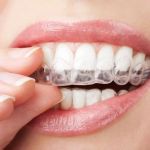What Causes Gums to Recede and How to Prevent It: Comprehensive Guide to Gum Health
- 1. What Causes Gums to Recede?
- 2. Effective Ways to Prevent Gum Recession
- 3. Best Oral Care Routine for Healthy Gums
- 4. When to Consult a Dentist About Receding Gums
1. What Causes Gums to Recede?
Gum recession is a common issue, and understanding what causes it can help you take proactive steps to protect your oral health. Several factors contribute to the thinning and retreating of gums, which exposes the tooth root and leads to discomfort and potential tooth loss if left untreated. The main causes of gum recession include:
- Periodontal disease: This bacterial infection affects the gums and can lead to gum recession over time.
- Brushing too hard: Overly aggressive brushing can wear down the gum tissue, causing them to recede.
- Genetics: Some people are genetically predisposed to gum recession, making them more susceptible.
- Hormonal changes: Changes due to pregnancy, menopause, or puberty can affect gum health.
- Smoking or tobacco use: Tobacco products contribute to gum disease and recession.
Understanding these causes can help you identify potential risk factors in your lifestyle and prevent further damage to your gums.
2. Effective Ways to Prevent Gum Recession
Preventing gum recession requires consistent oral hygiene and healthy habits. Here are several techniques that can help you protect your gums and prevent further recession:
- Brush gently: Use a soft-bristled toothbrush and avoid scrubbing too hard, which can damage the gum line.
- Use fluoride toothpaste: This helps strengthen teeth and prevent gum disease.
- Floss regularly: Flossing removes plaque buildup that brushing alone may miss, reducing the risk of gum disease.
- Eat a balanced diet: A diet rich in vitamins and minerals helps support gum health.
- Visit your dentist regularly: Professional cleanings and check-ups can help catch early signs of gum disease before it leads to recession.
By integrating these practices into your daily routine, you can significantly reduce the chances of gum recession and maintain healthier gums for years to come.
3. Best Oral Care Routine for Healthy Gums
To keep your gums healthy and prevent recession, it's essential to establish a solid oral care routine. Here's a recommended daily routine for optimal gum health:
- Morning: Brush your teeth gently for at least two minutes, use fluoride toothpaste, and floss afterward to remove plaque.
- After meals: Rinse with mouthwash to kill bacteria and freshen your breath.
- Nighttime: Repeat your morning routine and consider using an electric toothbrush for more thorough cleaning.
Taking care of your gums should be part of your overall oral hygiene routine, and consistency is key to ensuring long-term gum health.
4. When to Consult a Dentist About Receding Gums
If you notice signs of gum recession, such as tooth sensitivity, exposed tooth roots, or noticeable gaps between your gums and teeth, it's essential to consult a dentist as soon as possible. A dentist can assess the severity of the recession and recommend appropriate treatments, such as:
- Scaling and root planing: This deep cleaning technique removes plaque and tartar below the gum line to help prevent further recession.
- Gum grafts: In severe cases, gum tissue may be grafted to cover exposed roots and restore gum health.
Early intervention is crucial for preventing the progression of gum recession and maintaining your overall oral health.







 Toluca Lake Cosmetic Dentistry4.0 (71 review)
Toluca Lake Cosmetic Dentistry4.0 (71 review) Dentistry Apache Junction Dr. Abedi's Family and Cosmetic4.0 (485 review)
Dentistry Apache Junction Dr. Abedi's Family and Cosmetic4.0 (485 review) North Dover Dental of Toms River4.0 (257 review)
North Dover Dental of Toms River4.0 (257 review) Madison Oral Surgery & Dental Implants4.0 (661 review)
Madison Oral Surgery & Dental Implants4.0 (661 review) Wilmington Pediatric Dentistry5.0 (103 review)
Wilmington Pediatric Dentistry5.0 (103 review) Premier Dental4.0 (33 review)
Premier Dental4.0 (33 review) The Importance of Oral Health Education During Pregnancy for a Healthy Pregnancy
The Importance of Oral Health Education During Pregnancy for a Healthy Pregnancy Best Tips for Brushing Your Teeth Properly for Healthy Gums: Essential Techniques for Oral Health
Best Tips for Brushing Your Teeth Properly for Healthy Gums: Essential Techniques for Oral Health Why Skipping Dental Checkups Can Lead to Bigger Oral Health Problems
Why Skipping Dental Checkups Can Lead to Bigger Oral Health Problems Advantages of Porcelain Dental Restorations
Advantages of Porcelain Dental Restorations How Can Diabetes Cause Tooth and Gum Problems? Preventing and Managing Oral Health Issues
How Can Diabetes Cause Tooth and Gum Problems? Preventing and Managing Oral Health Issues Healthy Habits for Promoting Good Oral Health and Hygiene: Tips for a Healthy Smile
Healthy Habits for Promoting Good Oral Health and Hygiene: Tips for a Healthy Smile